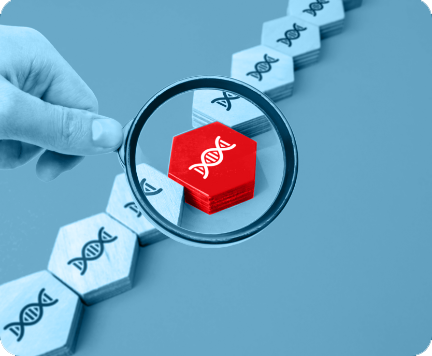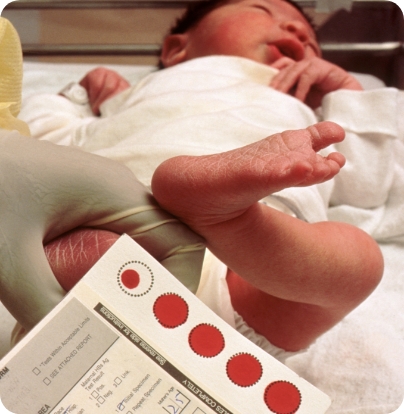Carnitine Deficiency
Carnitine deficiency is a metabolic disorder that can affect you or your loved ones.
Carnitine deficiency is a medical condition defined by low levels of carnitine.
When levels of carnitine are too low, cells may not be able to produce the energy they need to perform their tasks, which can cause symptoms such as tiredness, muscle weakness, heart problems and others.1
Carnitine deficiency can also lead to other unhealthy changes in the body, including low blood sugar, liver enlargement and elevated levels of ammonia and elevated levels of toxic byproduct of metabolism in the blood.2
There are two major forms of carnitine deficiency.

Primary carnitine deficiency is caused by a gene mutation that directly affects the synthesis or transport of carnitine.
Secondary carnitine deficiency has several potential causes, including:
A genetic mutation in the metabolic process that indirectly affects carnitine levels.
Hemodialysis for end-stage renal disease and for other forms of kidney failure.
People undergoing hemodialysis are at risk for secondary carnitine deficiency because4:
- carnitine loss due to hemodialysis
- impaired carnitine production due to kidney disease
- patients are often restricted from eating carnitine-rich foods
If you are on hemodialysis, talk to your doctor about getting tested and treated for carnitine deficiency.
Signs and Symptoms of carnitine deficiency and how it can affect the body
- A condition called encephalopathy that is a result of impaired brain function and may cause confusion, memory loss and other symptoms
- A failing heart, a condition called cardiomyopathy
- Abdominal pain
- Muscle weakness, aches and cramps
- Fatigue
- Vomiting
- Diarrhea
- Low blood sugar
- Anemia (low red blood cells) which can cause some fatigue and malaise
Severe carnitine deficiency also increases the risk of serious health issues.
A simple blood test can diagnose carnitine deficiency.

Newborns are screened for primary carnitine deficiency at birth. To learn more, visit Baby’s First Test.
Talk to your healthcare team to find out if CARNITOR® may be an appropriate treatment for your carnitine deficiency.
Sources
- Longo N, Frigeni M, Pasquali M. Carnitine Transport and Fatty Acid Oxidation. Biochim Biophys Acta. 2016;1863(10):2422-2435. doi:10.1016/j.bbamcr.2016.01.023
- Carnitine: Fact Sheet for Health Professionals. National Institutes of Health. Updated April 17, 2023. Accessed September 20, 2023. https://ods.od.nih.gov/factsheets/Carnitine-HealthProfessional/.
- Primary Carnitine Deficiency: MedlinePlus Genetics. MedlinePlus. Updated November 27, 2023. Accessed September 20, 2023. https://medlineplus.gov/genetics/condition/primary-carnitine-deficiency/#causes.
- Evans AM, Faull R, Fornasini G, et al. Pharmacokinetics of L-carnitine in patients with end-stage renal disease undergoing long-term hemodialysis. Clin Pharmacol Ther. 2000;68(3):238-249. doi:10.1067/mcp.2000.108850
- Eknoyan G, Latos DL, Lindberg J. Practice Recommendations for the Use of L-Carnitine in Dialysis-Related Carnitine Disorder. National Kidney Foundation. Carnitine Consensus Conference. American Journal of Kidney Diseases. 2003;41(4):868-876. doi:10.1016/s0272-6386(03)00110-0

